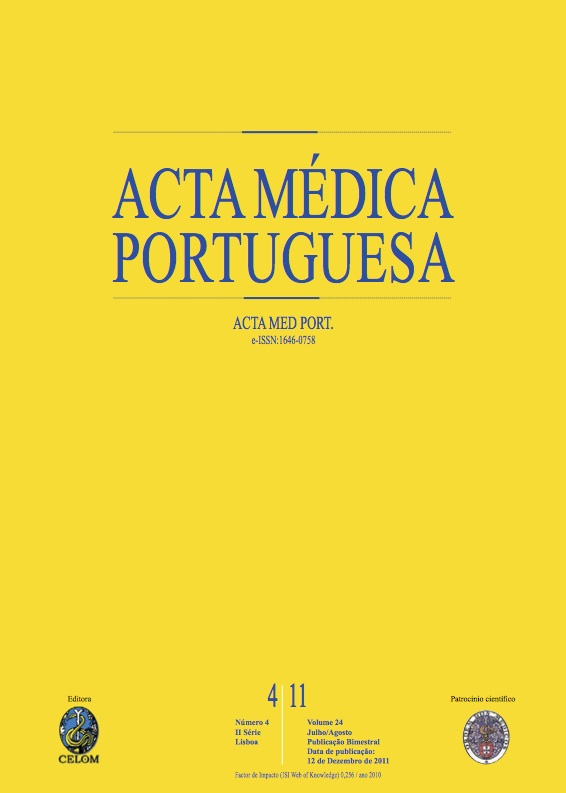Minimally invasive surgery in women with recurrent stress urinary incontinence.
DOI:
https://doi.org/10.20344/amp.491Abstract
Evaluate the efficacy and safety of minimally invasive surgical techniques as second procedure in recurrent stress urinary incontinence (SUI).We retrospectively analyzed data on patients submitted to this type of surgery after previous surgery failure, since September 2002 to December 2006. Several parameters were evaluated: women's age, symptoms, previous surgery, urodynamics results, procedure technique, complications at short (two months) and medium term (one year) results.Of the 73 analyzed cases, 57 patients had been submitted previously to classic surgery and 16 to minimally invasive surgery. In surgery for recurrent SUI using minimally invasive techniques eight complications were registered (five vaginal perforations, two bladder lacerations and one femoral vein laceration); post-op complications occurred in 13 cases (three urinary retentions, two urinary tract infections, one anaemia and seven vaginal sling erosions). Short-term cure, improvement and failure rates were 69.9%, 28.8% and 1.4%, respectively. At medium term, these rates were of 54.8%, 41.1% and 4.1%, respectively.Minimally invasive surgery for recurrent SUI is a valid option after previous surgery failure, given the low morbidity and reduced failure rate at short and medium term.Downloads
Downloads
How to Cite
Issue
Section
License
All the articles published in the AMP are open access and comply with the requirements of funding agencies or academic institutions. The AMP is governed by the terms of the Creative Commons ‘Attribution – Non-Commercial Use - (CC-BY-NC)’ license, regarding the use by third parties.
It is the author’s responsibility to obtain approval for the reproduction of figures, tables, etc. from other publications.
Upon acceptance of an article for publication, the authors will be asked to complete the ICMJE “Copyright Liability and Copyright Sharing Statement “(http://www.actamedicaportuguesa.com/info/AMP-NormasPublicacao.pdf) and the “Declaration of Potential Conflicts of Interest” (http:// www.icmje.org/conflicts-of-interest). An e-mail will be sent to the corresponding author to acknowledge receipt of the manuscript.
After publication, the authors are authorised to make their articles available in repositories of their institutions of origin, as long as they always mention where they were published and according to the Creative Commons license.









